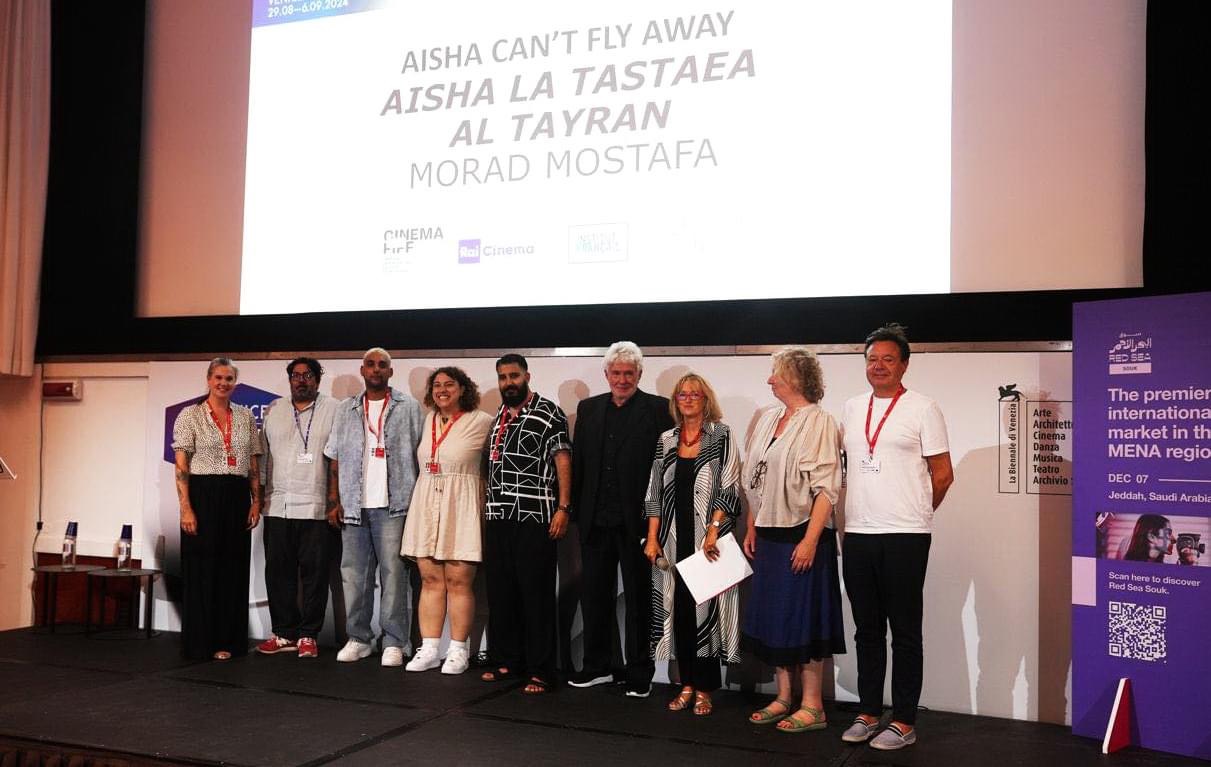The Egyptian film *Aisha Can’t Fly* has taken home the Grand Support Award at the Final Cut Workshop, part of the 81st Venice International Film Festi
The Egyptian film *Aisha Can’t Fly* has taken home the Grand Support Award at the Final Cut Workshop, part of the 81st Venice International Film Festival currently underway. This milestone marks a significant achievement for the film’s director, Morad Mostafa, as it becomes the first Egyptian film to ever win a Biennale award in the Final Cut category.
*Aisha Can’t Fly* also secured five awards in total during the festival, underlining its impact and resonance within the global cinematic community. The film, a co-production involving Egypt, Tunisia, Saudi Arabia, Qatar, and France, explores the life of Aisha, a 26-year-old African immigrant navigating the underground world of African migrant communities in Cairo. Through Aisha’s journey, the film delves into the complex dynamics and tensions that exist among different migrant groups in the city.
The movie stars Polyana Simão, alongside Egyptian rapper Ziad Zaza, Emad Ghoneim, and Mamdouh Saleh. The cinematography was handled by Mostafa El Kashef, known for his work on *Issa* and the Somali film *The Village Next to Paradise*, which also made its mark at the Cannes Film Festival. The film’s editing was crafted by Mohamed Mamdouh, further adding to its strong technical foundation.
**Expanding the Story: A Window into African Migration in the Arab World**
Beyond its festival success, *Aisha Can’t Fly* offers a poignant and timely narrative that reflects on the broader issues of migration, identity, and survival. The film’s portrayal of an African woman’s experience in Cairo brings to light the often overlooked and harsh realities faced by migrants in the Arab world. Aisha’s story, characterized by resilience and determination, mirrors the struggles of many who find themselves in foreign lands, striving to carve out a place for themselves against the odds.
The collaborative nature of the film’s production, involving multiple countries, also highlights the growing trend of cross-border partnerships in cinema. This approach not only enriches the storytelling process but also enables filmmakers to bring diverse perspectives and resources to their projects, thereby enhancing the global appeal of their work.
The success of *Aisha Can’t Fly* at the Venice Film Festival underscores the importance of such stories in today’s world. As global audiences become more interconnected, films like this play a crucial role in fostering understanding and empathy across cultures. The recognition at Venice is not just a win for the filmmakers but also for the broader narrative of African immigrants whose stories deserve to be told on the world stage.
This victory sets a precedent for future Egyptian and African films, demonstrating that stories rooted in local experiences can resonate powerfully on an international level. The accolades garnered by *Aisha Can’t Fly* may well pave the way for more diverse voices to emerge in global cinema, offering fresh perspectives on the human condition.
Sari Albeder – Venice Film Festival 2024

COMMENTS